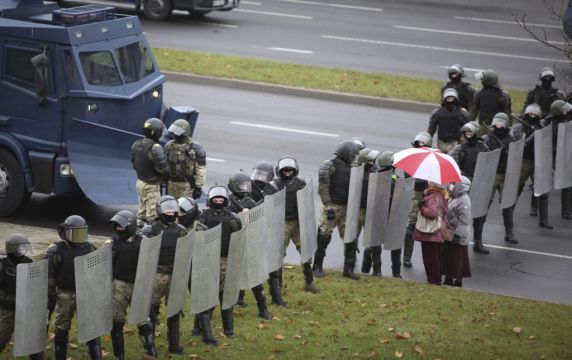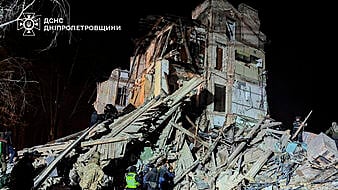Thousands of people have rallied in Belarus following the death of an opposition supporter after he was reportedly beaten by security forces, and the European Union condemned the violent crackdown Belarusian authorities have waged on peaceful protesters.
The death came about three months after mass protests began in Belarus following the August 9 election that official results say gave authoritarian President Alexander Lukashenko a sixth term in office.
The opposition and some poll workers say the results were manipulated and have been calling for Mr Lukashenko’s resignation.
More than 17,000 people have been detained — and thousands brutally beaten — since the election, human rights advocates say.

Thousands of people carrying flowers and candles formed human chains of solidarity in several Belarusian cities, including the capital Minsk, to honour 31-year-old Raman Bandarenka, who died in Thursday in a Minsk hospital after several hours of surgery due to serious injuries.
“Stop killing us,” said some of the banners demonstrators were holding.
According to Ales Bialiatski, leader of the Viasna human rights centre, Mr Bandarenka was detained in a Minsk courtyard on Wednesday evening by men in plainclothes, who came to take down red and white ribbons — a symbol of the protests in Belarus — decorating the yard.
Mr Bandarenka was handed over to police and brutally beaten inside a van, Mr Bialiatski said in a statement.
“As a result, Raman sustained a severe head injury and in grave condition was brought to the police (department). An ambulance wasn’t called for two more hours. The doctors were unable to save Raman Bandarenka’s life,” Mr Bialiatski added, calling for a criminal investigation.
Authorities have confirmed Mr Bandarenka was taken to hospital from a police department in Minsk, but denied responsibility for his death.
Police maintained he was injured in a street fight, and Belarus’s Investigative Committee said he was also diagnosed with “alcohol intoxication”. An inquiry has been launched.

Mr Bandarenka’s death sparked outrage in Belarus and abroad.
“This is an outrageous and shameful result of the actions by the Belarusian authorities who have not only directly and violently carried out repression of their own population, but also created an environment whereby such lawless, violent acts can take place,” said Peter Stano, the EU’s spokesman for foreign affairs and security policy.
He added that Mr Lukashenko’s government was “ignoring not only the fundamental rights and freedoms of the Belarusian people, but also disregarding their lives”.
Opposition leader Sviatlana Tsikhanouskaya, who challenged Mr Lukashenko at the presidential election in August, called Mr Bandarenka “a hero” and “an innocent victim of an inhumane system”.
“The man was killed because he wanted to live in a free country,” Ms Tsikhnaouskaya, who is in exile in Lithuania, said in a video statement. “But we will never obey those who are ready to kill us.”
In an interview with state media on Friday, Mr Lukashenko did not mention Mr Bandarenka’s death and renewed his stance that the unrest is illegitimate. He likened it to the so-called “colour revolutions” that overthrew leaders in other post-Soviet countries.
“We unequivocally assess the events taking place in the country after the elections as an attempt at an unconstitutional coup on the patterns of, as they say now, colour revolutions,” he said. ““Any colour revolution makes the state weaker and the people poorer.”
Four people are now reported to have died since the protests began in August as the result of the crackdown on demonstrators and opposition supporters. No criminal probes have been launched into the deaths.







